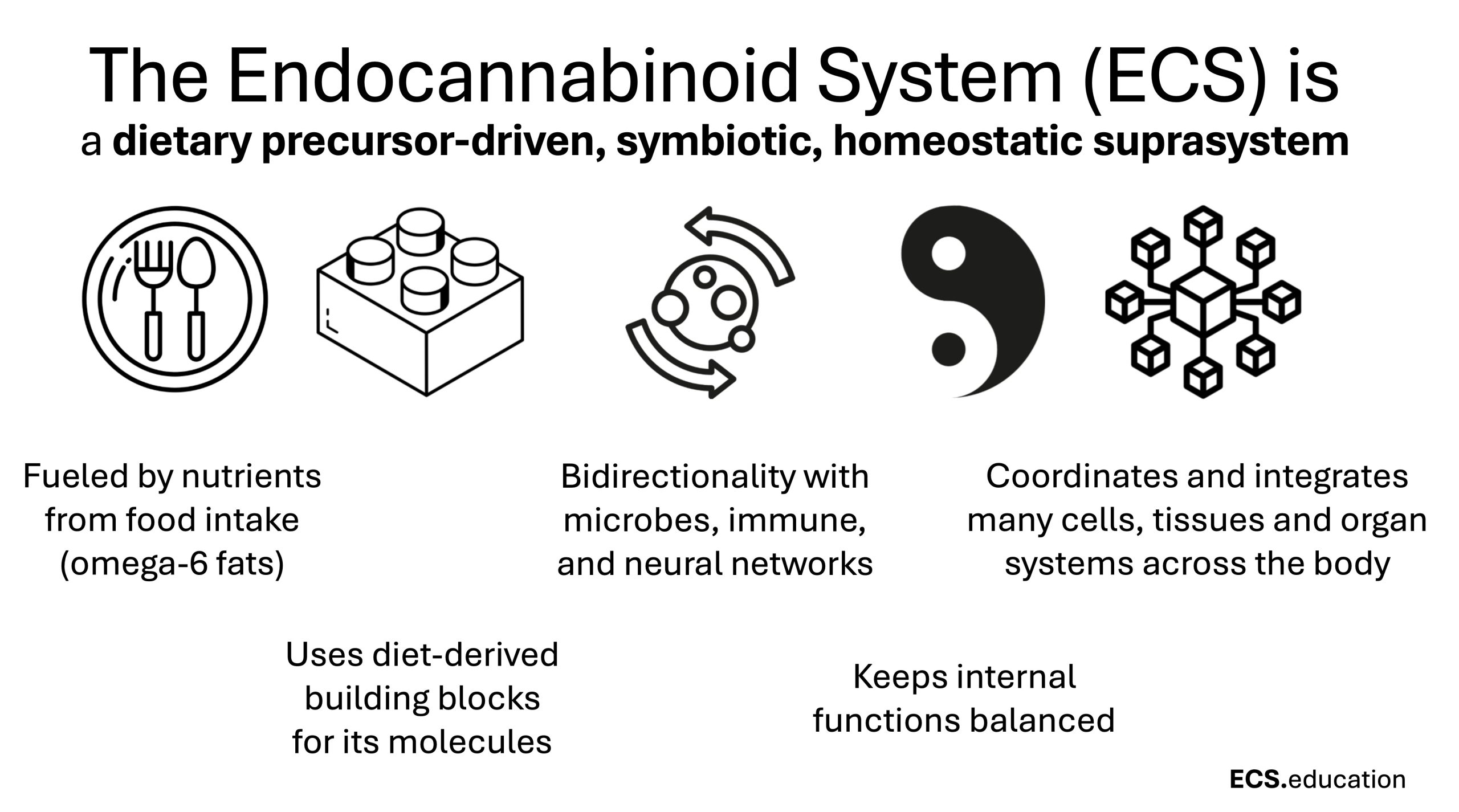The Misunderstood Master Regulator
The endocannabinoid system (ECS) is often considered the “cannabis system,” but this label ignores its true—and far broader and more important—role in holistic health. Instead of being defined by external substances, the ECS is a dietary precursor-driven, symbiotic, homeostatic suprasystem: a dynamic physiological network that maintains body-wide balance through nutrition, microbiome interactions, and physiology-wide, multi-organ coordination.
As illustrated in the blog header, the ECS effectively uses:
- Dietary inputs fuel its operations.
- Precursor molecules (such as fatty acids) serve as structural building blocks.
- Symbiotic partnerships with specific beneficial gut microbes (like Lactobacillus) help regulate ECS activity.
- Homeostatic mechanisms ensure physiological stability throughout the body.
- As a suprasystem, the ECS can modulate our physiology at organ, tissue, and cellular levels.
This framework supports everything from immune function to metabolic health, emphasizing diet’s profound impact over any single compound like THC or CBD.
Why Omission in Medical Education Hurts Patients
Despite its centrality to holistic health, the ECS remains glaringly absent from most medical curricula. This knowledge gap leaves healthcare providers ill-equipped to address root causes of widespread conditions like chronic inflammation and metabolic disorders, often driven by dietary ECS dysfunction. As a result, patients miss out on preventive strategies and holistic care.
It’s time for change. We must integrate ECS education to empower clinicians with the tools needed for modern, evidence-based patient care.
It’s time to advocate for change: Integrate ECS education to empower doctors with tools for truly holistic patient care.


Comment
Comments are closed.